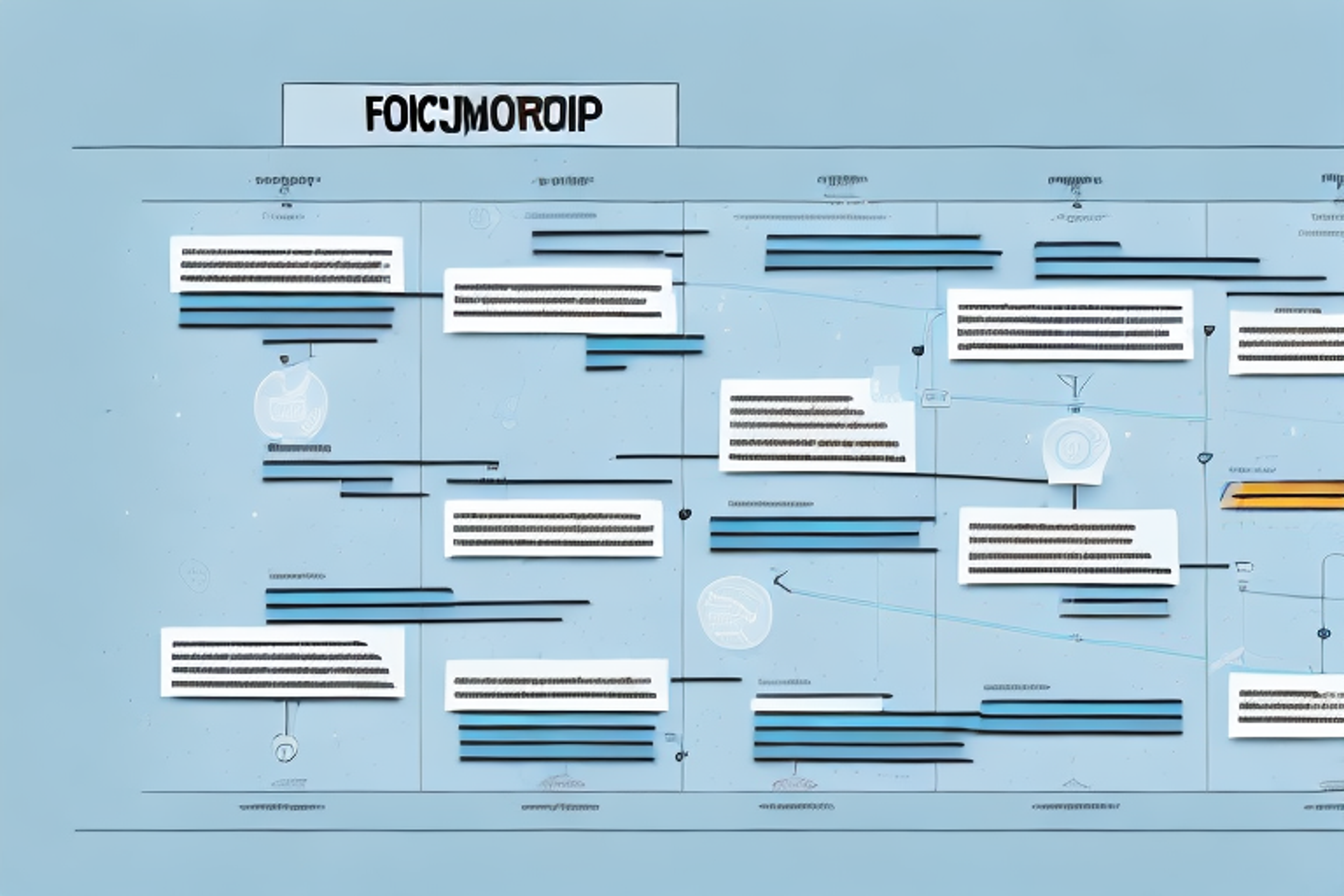Brand Manager: What They Do & How It's Different From Marketing/Product Managers
What does a brand manager do? Learn how they shape brand identity, drive loyalty, and collaborate across teams. Full guide to skills, roles, and careers.
Posted July 9, 2025

Table of Contents
Free Event

Featuring Christina P.
Skills to Be a Full-Stack PM
Starting Wednesday, September 10
4:00 PM UTC · 30 minutes

Featuring Christina P.
In today’s crowded market, a strong brand isn’t just important — it’s essential. Behind every brand that customers trust and remember is a brand manager making sure every interaction feels consistent, meaningful, and strategic.
But if you've ever confused a brand manager with a product manager or marketing manager, you're not alone. These roles often overlap, but the day-to-day focus, skills, and goals are very different.
In this guide, we’ll break down exactly what a brand manager does, what skills you need to succeed, how brand management compares to other roles, and why mastering branding is one of the smartest career moves you can make today.
Brand Manager Job Description: Key Responsibilities
A brand manager is the strategic mind behind a company’s public image. Their main focus is to ensure brand consistency across all marketing efforts while driving brand recognition, brand loyalty, and brand equity.
Here’s a look at the key responsibilities included in a typical brand manager job description:
- Develop and execute brand strategy to drive brand awareness and differentiate the brand from competitors.
- Conduct market research and competitor research to gather customer insights and identify trends.
- Create consistent messaging across digital marketing, advertising campaigns, social media marketing, and other marketing initiatives.
- Oversee brand positioning efforts, ensuring the brand stands out clearly in the market.
- Collaborate with cross-functional teams like product, sales, and the marketing department. Monitor brand performance metrics and adjust strategies based on data analysis.
- Ensure consistent brand identity across all touchpoints, from websites and email marketing to packaging and advertising strategies.
- Manage branding efforts during product launches, rebrands, or marketing campaigns.
Senior brand managers often take on additional responsibilities such as mentoring branding teams, aligning branding strategies with executive leadership, and overseeing multiple projects across smaller companies or large enterprises.
Essential Skills for Effective Brand Management
To succeed in brand management, you need more than just creative ideas. You have to be a strategist, a collaborator, and a brand protector — often all at once. Here’s what it takes to thrive:
Build Strategies That Actually Move the Brand Forward
Strong brand managers don’t just create pretty logos or catchy slogans. They design brand strategies rooted in customer insights, market research, and competitive analysis. It’s about understanding what the market needs, where the company can win, and how the brand should evolve over time.
Communicate the Brand Vision Across Every Team
From marketing directors to social media managers, everyone who touches the brand needs to be aligned. Great brand managers know how to communicate clearly across internal teams, ensuring that every piece of marketing content, every advertising campaign, and every customer touchpoint reinforces the brand’s identity.
Dig Deep into Market Research and Stay Curious
To stay ahead, brand managers need a constant flow of fresh market research and customer insights. They don't wait for reports to land on their desk — they lead surveys, run focus groups, and tap into real-world conversations to understand where the brand stands and where it needs to go.
Keep Projects Moving Without Dropping the Ball
Whether it’s managing a full rebrand or launching multiple marketing initiatives at once, brand managers must be expert project managers. Staying organized, keeping deadlines on track, and collaborating across cross-functional teams is essential for delivering consistent, high-impact branding efforts.
Balance Creative Vision With Practical Execution
The best brand managers have a sharp, creative eye — but they also know how to tie creative ideas back to the brand’s core positioning and business goals. It's not enough for a campaign to look good; it has to build brand recognition, drive brand loyalty, and reinforce the message the company wants to own.
Lead, Don’t Just Collaborate
Brand management is about influence. Strong brand managers don’t just "work well with others" — they lead internal teams, shape strategic discussions, and make sure the brand’s voice stays strong even as marketing trends and market dynamics evolve.
Ready to build these skills and stand out in brand management? Work 1:1 with an expert career development coach to develop real-world strategies that top companies are looking for.
What a Brand Manager Focuses On Day-to-Day
On a daily basis, brand managers focus on initiatives that protect and enhance the company’s reputation:
| Daily Task | Purpose |
|---|---|
| Conducting market research and focus groups | Gather customer insights, assess brand perception, and monitor competitor movements. |
| Developing and refining brand strategy | Align brand mission, vision, and positioning with business goals and customer needs. |
| Building and executing marketing strategies | Support broader marketing efforts while ensuring brand alignment across campaigns. |
| Working with the marketing team and the marketing department | Maintain consistent messaging, visual identity, and tone across all marketing initiatives and channels. |
| Planning and overseeing advertising campaigns | Drive brand awareness, brand recognition, and promote effective brand management across target markets. |
| Managing social media marketing and digital marketing efforts | Engage audiences authentically, reinforce brand voice, and monitor brand sentiment in real time. |
| Collaborating with cross-functional teams (product, sales, customer service) | Ensure brand messaging supports product launches, customer experiences, and marketing content creation. |
| Conducting data analysis and measuring brand performance | Track key brand equity metrics, assess marketing campaign effectiveness, and optimize branding efforts. |
| Adjusting brand strategies based on market trends | Adapt branding approaches to stay competitive and meet evolving customer expectations. |
| Ensuring brand consistency across internal teams and external marketing efforts | Strengthen brand loyalty, attract new customers, and support long-term brand growth. |
Their work ensures brand consistency across digital marketing, print, and in-person experiences, ultimately strengthening brand equity.
Why Brand Strategy and Brand Positioning Matter
A well-defined brand strategy is what sets thriving companies apart from the competition. Brand managers are responsible for building strategic plans that:
- Define the brand’s mission, vision, and core values.
- Establish effective messaging that resonates with the target audience.
- Position the brand clearly through strong brand positioning tactics.
- Drive brand awareness through targeted marketing efforts and advertising strategies.
Without a solid brand strategy, even the best marketing campaigns can fail to connect.
How Brand Managers Work With the Marketing Department
While brand managers focus on the broader identity and emotional connection of a brand, they work closely with the marketing team and marketing department to execute tactical plans.
Key ways brand managers collaborate with marketing:
- Aligning on marketing initiatives like content marketing, social media campaigns, and events.
- Ensuring brand consistency across all marketing content.
- Advising on advertising strategies that reflect brand positioning.
- Working with marketing directors to optimize marketing efforts and reach customers more effectively.
In some companies, the marketing manager oversees broader operational marketing while the brand manager leads brand-specific projects.
Brand Management vs Product Management vs Marketing Management
While brand managers, product managers, and marketing managers often collaborate closely, each plays a distinct role in driving business success. Understanding the differences is crucial if you're considering a career in any of these fields — or if you want to build a team that excels.
| Role | Primary Focus | Key Responsibilities | Measures of Success |
|---|---|---|---|
| Brand Manager | Building and protecting the brand’s identity, positioning, and emotional connection with customers. | Developing brand strategy, managing brand equity, ensuring brand consistency across all touchpoints, driving brand recognition and loyalty, conducting market research to guide brand messaging. | Strong brand awareness, positive brand perception, increased customer loyalty, growth in brand equity metrics. |
| Product Manager | Creating, launching, and managing products that meet customer needs and align with business goals. | Defining product roadmaps, gathering customer feedback, conducting competitor research, leading cross functional teams, prioritizing features, ensuring successful product launches and lifecycle management. | Product adoption rates, customer satisfaction scores (CSAT, NPS), revenue growth from product lines, successful product-market fit. |
| Marketing Manager | Designing and executing marketing campaigns to promote products and brands to target audiences. | Developing marketing strategies, overseeing marketing initiatives, managing marketing content, coordinating advertising campaigns, working with sales teams to drive demand generation. | Lead generation, campaign ROI, customer acquisition costs (CAC), conversion rates, and marketing-driven revenue. |
Key differences include:
- Brand managers are concerned with intangible brand elements: identity, trust, and loyalty.
- Product managers focus on tangible product features, customer pain points, and product market fit.
- Marketing managers focus on operational execution of marketing strategies to drive leads and sales.
Brand Manager Salaries, Career Paths, and Future Outlook
Brand manager salaries vary widely based on experience, industry, and location. According to recent industry reports, the average brand manager salary in the United States ranges from $85,000 to $120,000 per year. Senior brand managers and corporate brand managers working at major companies or in competitive industries can earn significantly more, sometimes exceeding $150,000 annually with bonuses and stock options.
In terms of career progression, many professionals start in junior roles and gradually take on broader strategic leadership responsibilities. A typical career path might look like this:
- Junior Brand Manager - Focuses on supporting branding efforts, managing individual campaigns, conducting market research, and coordinating with the marketing department.
- Brand Manager - Leads the development of brand strategies, manages brand consistency across marketing initiatives, and collaborates directly with cross-functional teams to deliver branding results.
- Senior Brand Manager - Oversees multiple product lines or branding teams, develops corporate-level brand positioning strategies, and influences larger marketing campaigns and advertising strategies.
- Corporate Brand Manager - Manages branding efforts across multiple markets, regions, or divisions, ensuring global brand consistency and driving brand equity growth at scale.
- Marketing Director or VP of Marketing - Oversees brand management alongside broader marketing initiatives, leads internal teams, and sets the overall marketing vision and strategy for the company.
As brand management becomes increasingly vital in the digital economy, companies are prioritizing candidates with advanced skills in areas like digital marketing, customer insights, content marketing, and data-driven brand strategy.
Read: How to Negotiate Your Salary – With Example Emails
Final Takeaways: Is a Career in Brand Management Right for You?
Brand management is ideal if you love storytelling, strategy, creativity, and cross-team collaboration. It’s a role that sits at the intersection of marketing, psychology, and business.
If you’re passionate about shaping how a company is perceived and driving brand awareness, brand loyalty, and effective marketing initiatives, a career in brand management could be a perfect fit.
Want to break into brand management or level up your branding career? Work 1:1 with a top career development coach to map out your career path and start delivering results today.
For more about product management, check out these resources:
- Top 25 APM Programs (2025)
- Tips from an Expert: How to Prepare for Your Product Management Interview
- The Best Newsletters & Podcasts for Product Management
- Moving Beyond Frameworks: The Secret to Excelling in Product Management Interviews
FAQs
How does a brand manager contribute to a product launch?
- A brand manager plays a crucial role in product launches by ensuring that the new product aligns with the brand's identity and values. They collaborate with product development and marketing teams to create cohesive messaging, oversee the creation of promotional materials, and monitor the product's performance post-launch to maintain brand consistency and equity.
What are the key performance indicators (KPIs) for a brand manager?
- Key performance indicators for brand managers often include brand awareness metrics, customer loyalty and retention rates, market share, and brand equity scores. These KPIs help assess the effectiveness of branding strategies and initiatives in achieving the company's long-term goals.
Can a brand manager work across multiple product lines?
- Yes, brand managers often oversee multiple product lines, especially in larger organizations. They ensure that each product aligns with the overarching brand strategy and maintains consistent messaging and visual identity, while also addressing the unique positioning and target audience of each product line.











